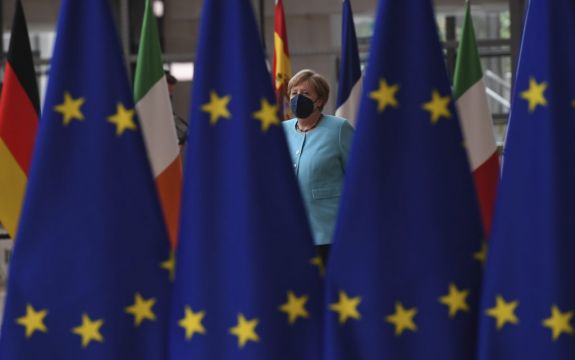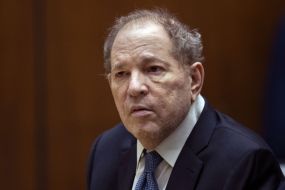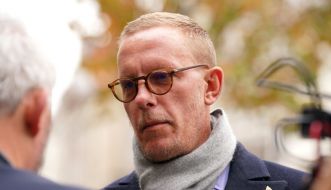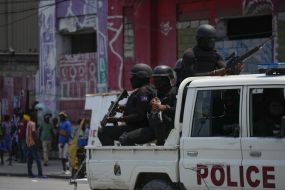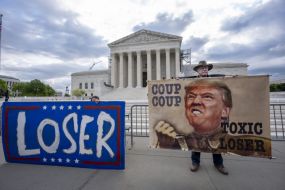Countries bordering Russia have expressed deep concern about a Franco-German plan to resume official meetings with Russian President Vladimir Putin, likening the move to an attempt to talk a bear out of trying to steal honey.
The European Union is deeply divided in its approach to Moscow. Russia is the EU’s biggest natural gas supplier, and plays a key role in a series of international conflicts and issues linked to Europe’s strategic interests, including the Iran nuclear deal, and conflicts in Syria and Libya.
European heavyweight Germany has strong economic interests there, notably the NordStream 2 undersea pipeline project, and a number of countries, including France, are reluctant to continue waging a sanctions battle with Russia, including over the poisoning of opposition leader Alexei Navalny.
The EU is concerned that Putin is turning increasingly authoritarian and wants to distance himself from the West. Both the 27-nation trading bloc and the NATO military alliance are struggling to bring Russia to the table. US President Joe Biden’s meeting with Putin this month was a rare exception.
“We have to deal with Russia, but being very cautious about the real intentions of Putin’s regime,” Lithuanian President Gitanas Nauseda told reporters at an EU summit in Brussels, where the issue will be discussed. “So far, we don’t see any radical change in the pattern of behaviour of Russia.”
“If, without any positive changes in the behaviour of Russia, we start to engage, it will send very uncertain and bad signals, for example to eastern partnership countries,” Nauseda said. “It seems to me like we try to engage a bear to keep a pot of honey safe.”
The other two Baltic states, Estonia and Latvia, are also deeply concerned about reaching out to Russia when the Minsk agreements meant to bring peace to Ukraine, whose Crimean Peninsula Russia annexed in 2014, are still not being respected. Conflict simmers in eastern Ukraine with Russia-backed separatists.
“Right now, if it pans out the way it’s proposed, Russia annexes Crimea, Russia wages war in Donbass, and Europe shrugs its shoulders and continues to try to speak a dialogue. The Kremlin does not understand this kind of politics,” said Latvian Prime Minister, Krisjanis Karins.
“The Kremlin understands power politics. The Kremlin does not understand free concessions as a sign of strength,” Karins said.
His Estonian counterpart, Kaja Kallas, said she’s keen to hear what France and Germany think has improved to permit such a change of policy. “We should be very clear. What is our goal in relationship with Russia, and what has changed, why this is on the table now?”

“What our intelligence tells us is that sanctions work and the European Union has to be more patient,” she added.
But French President, Emmanuel Macron, said Europe cannot simply tackle its problems with Russia on a case-by-case basis, by continually imposing sanctions or other measures.
“We cannot continue without dialogue. We have to talk, including about our disagreements. It’s the only way to resolve them,” Macron said. “It’s a dialogue that’s necessary for the stability of the European continent, but demanding because we will not give up our interests and values.”
In Berlin, the German Chancellor, Angela Merkel, told lawmakers that “the events of recent months — not just in Germany — have clearly shown that it’s not enough if we react to the multitude of Russian provocations in an uncoordinated way.”
“Instead, we have to create mechanisms to respond in a common and unified way to provocations” to what she described as “hybrid attacks by Russia.”
That includes reaching out to countries such as Ukraine, Belarus and the western Balkans, and also engaging Russia and Putin directly.
The plan was welcomed in Moscow. Kremlin spokesman Dmitry Peskov said Putin supports the idea to restore “the mechanism of direct contacts between Brussels and Moscow”.
“Putin has spoken about it many times,” Peskov said. “Both Brussels and Moscow really need this dialogue.”
Ukraine, in contrast, was not so keen about the EU outreach.
“Initiatives to resume EU summits with Russia without seeing any progress from the Russian side will be a dangerous deviation from EU sanctions policy,” Ukraine Foreign Minister Dmytro Kuleba said in Brussels.
The Dutch Prime Minister, Mark Rutte, said he had no trouble with top EU officials meeting with Putin, but that “I will not participate in a meeting with Vladimir Putin myself.”
Asked why, he said: “MH17” — a reference to Malaysia Airlines Flight 17, which was shot down over eastern Ukraine by pro-Russia separatists nearly seven years ago, killing 298 people, many of them Dutch.
